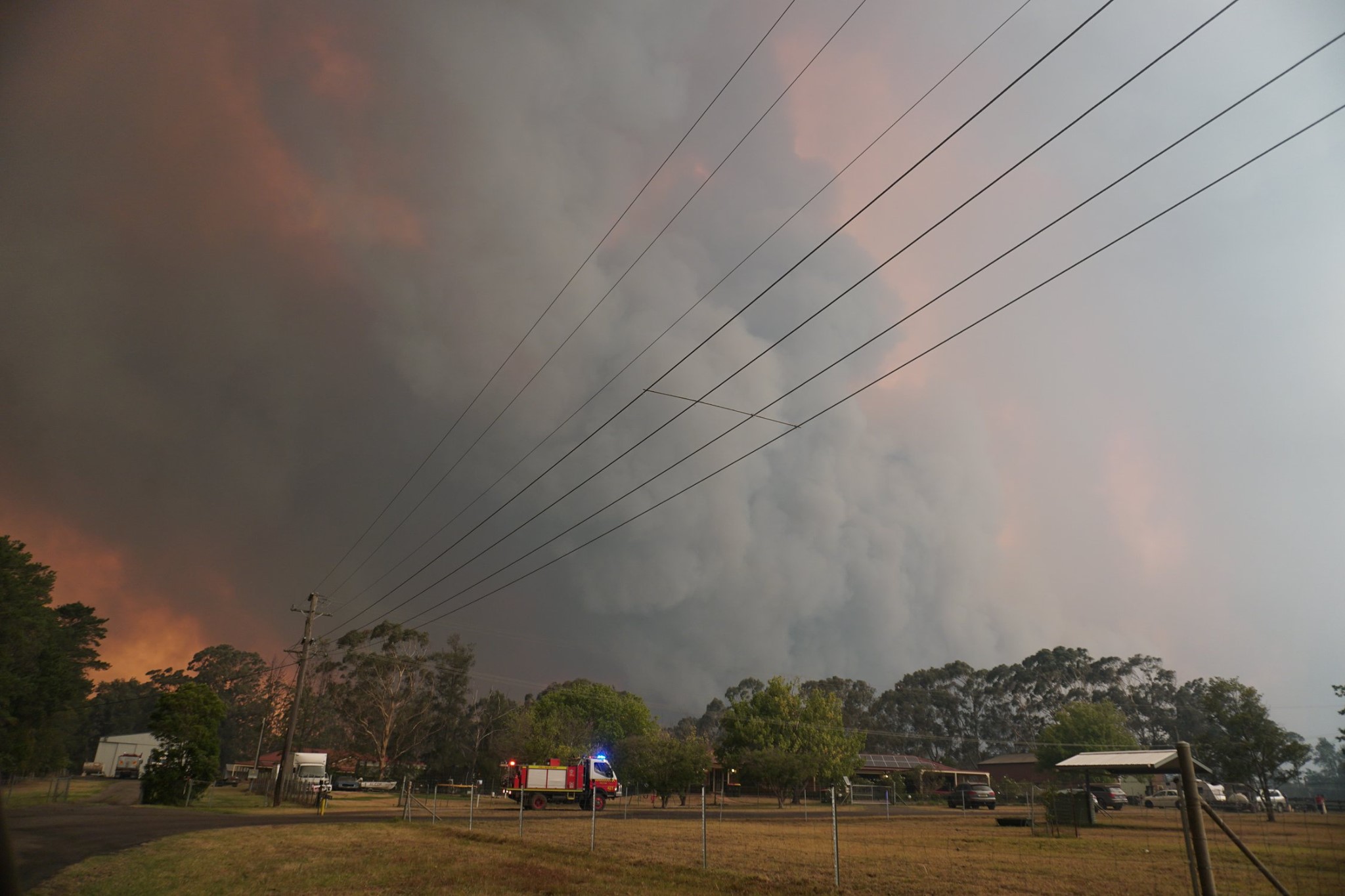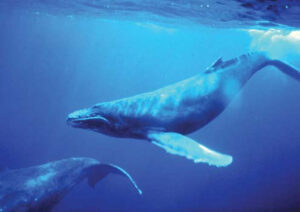The new decade starts with political chaos in the United States, as president Donald Trump continues his assault on environmental regulations. Over 95 rules were being rolled back at the turn of the decade, according to the New York Times. These environmental protections included public health safeguards against air, water and toxic waste pollutants; regulations intended to protect wildlife; and regulations involving the coal, oil and gas industries. For example, the EPA finalized a rule to limit what scientific research the agency can use to formulate regulations.
Jan 8 — Australia’s bushfires grow even worse. Twenty eight people are dead, hundreds of millions of animals have been killed, 10.7 million hectares (26 million acres / 41,000 square miles) and 5,900 buildings had been destroyed by early January. Controversy breaks out as Australia’s climate-denying government attempts to blame the environmental crisis on environmentalists reluctant to engage in prescribed burning of underbrush. Disinformation campaigns add arson to the charges. But in fact, scientists say climate change has been a contributor to the intensity and severity of the droughts and bush fires.
Jan 9 — A proposal to radically alter the US National Environmental Policy Act is among the strongest of Trump’s attempts to overturn environmental regulations, which he claims (without evidence) are burdensome to industry. The NEPA, first passed in 1970, requires (among other things) federal review of major projects with environmental impacts. Trump’s proposal is unlikely to pass federal courts because it would circumvent legislation passed by Congress, and only Congress has the power to change it, which would be unlikely in the current political climate. Still, according to historian Douglas Brinkley: “No other president has had the gall to try to back polluters and turn back the clock… Nothing compares to what Donald Trump is doing.”
Jan 11 — US National Parks are being deliberately destroyed by the Trump administration, according to a former NPS employee writing in the Guardian.
Jan 13 — Warming oceans — The year 2019 set a new record for ocean warming, climate experts from US and Chinese government agencies said in an Advances in Atmospheric Sciences article. “Human-emitted greenhouse gases have resulted in a long-term and unequivocal warming of the planet,” the article said. “More than 90% of the excess heat is stored within the world’s oceans, where it accumulates and causes increases in ocean temperature. Because the oceans are the main repository of the Earth’s energy imbalance, measuring ocean heat content is one of the best way to quantify the rate of global warming.”
Jan 21 — Climate activist Greta Thunberg is defended by German Prime Minister Angela Merkel after Thunberg traded tweets with Donald Trump and his followers in Davos, Switzerland. “Time is pressing, so we – the older ones … must make sure that we take the impatience of young people positively and constructively,” Merkel said. (Reuters).
Feb 2 — Butterfly reserve workers killed — Homero Gomez Gonzales, manager of El Rosario monarch butterfly reserve and advocate for preservation of nature in Mexico, went missing Jan. 20 and was found dead, floating in a well, on Jan 29. Another man, a part time tour guide at the butterfly reserve, Raúl Hernández Romero, also went missing Jan. 27 and was found dead in early February. Millions of the orange and black butterflies make a 2,000-mile (3,220-km) journey each year from Canada to winter in central Mexico, and the butterfly reserve is a World Heritage Site. But extreme weather and changing habitat now threatens the butterflies’ survival. The violence against reserve workers comes from drug gangs who battle to control smuggling routes through the reserve.
Feb 17 — Climate change — Jeff Bezos, founder of online retail giant Amazon, says the company will commit $10 billion to fund scientists, activists, nonprofits and other groups fighting to protect the environment and counter the effects of climate change. (Reuters).
March 23 — Air pollution declines around the world as people quarantine from the spread of coronavirus. New Delhi, the world’s most polluted capital city, had a moderate Air Quality Index around 93, on Monday afternoon. New Delhi’s air is regularly considered unhealthy, at about 161 in March 2019, according to IQAir, a Swiss research group.
March 26 — US Environmental regulations — The Trump administration is easing environmental regulations to help industries cope with impacts from the coronavirus. The oil industry is especially keen to have restrictions lifted, allowing sale of higher volatility winter-grade gasoline in spring and summer in order to deal with a supply glut, as the coronavirus outbreak cuts deeply into demand for fuels. (Reuters).
March 27 — Coronavirus & climate legislation — US Senate Republicans say the coronavirus stimulus is the reason for the defeat of Green New Deal proposals. Others vehemently object to this as mischaracterization and false dichotomy. director of climate policy at the Roosevelt Institute, says in a New York Times op-ed that the two crises are linked:
Pandemics like the coronavirus may occur more often when climate change is unabated. Warming and changing weather patterns shift the vectors and spread of disease. Heavily polluting industries also contribute to disease transmission. Studies have linked factory farming — one of the largest sources of methane emissions — to faster-mutating, more virulent pathogens. The same corporations that exacerbated the climate crisis are literally helping to create deadlier diseases, more quickly, in a world that keeps changing how they spread.
March 27 — Meanwhile, European Union leaders agreed that coronavirus economic recovery plans should include measures to combat climate change.
April 1 — The Trump Administration is racing to roll back environmental standards and privatize public lands before the election-year clock runs out, according to the former Deputy Administrator of the US Dept. of Interior. “Their strategy is to plow forward regardless of the public health threat, working at a breakneck pace, undistracted by careful scientific deliberation or feedback from the public, which has been largely sidelined by the corona virus,” said David J. Hayes in a Washington Post Op-ed.
April 10 — Deforestation is on the rise in the Amazon rain forest, according to Brazil’s space agency INPE. Environmentalists blame ultra right-wing President Jair Bolsonaro for encouraging the destruction of the Amazon. (Reuters)
April 22 — Fiftieth Anniversary of Earth Day, a global celebration and search for inspiration toward planetary recovery and public health protection. (Earthday.org)
May, 2020 — Sea Mining — The Ocean Foundation and other groups begin a campaign against deep sea mining.
 May 6 — Biodiversity is declining at an accelerating rate, according to a United Nations report.
May 6 — Biodiversity is declining at an accelerating rate, according to a United Nations report.
Nature is declining globally at rates unprecedented in human history – and the rate of species extinctions is accelerating, with grave impacts on people around the world now likely, warns a landmark new report from the Intergovernmental Science-Policy Platform on Biodiversity and Ecosystem Services (IPBES), the summary of which was approved at the 7th session of the IPBES Plenary, meeting last week (29 April – 4 May) in Paris.
June, 2020 — Justice — As the movement for racial justice accelerates with murders of Ahmaud Arbury, George Floyd and Breonna Taylor, the parallel movement for environmental justice also gains momentum, according to a sweeping update from Environmental Health News.
June 14 — Swiss voters reject environmental proposals intended to help the country meet carbon emissions goals under the Paris Agreement on Climate Change.
June 17, 2020 — Environmental destruction triggered the Covid-19 pandemic, according to leaders of the World Wildlife Fund, the UN Convention on Biological Diversity and the World Health Organization who wrote a warning letter to the Guardian. Diseases such as Zika, Aids, Sars and Ebola all originated from animal populations under conditions of severe environmental pressures, they say. “They all illustrate that our destructive behavior towards nature is endangering our own health – a stark reality we’ve been collectively ignoring for decades.” The The UN biodiversity summit, scheduled for September, offers world leaders an opportunity to support a new relationship with the natural world, they say.
June 21 — A record temperature of 100 degrees F is observed on this day in northeastern Siberia above the Arctic circle.
June 26 — Strengthening US air quality standards to WHO guidelines would save 14,000 lives per year, a Harvard public health study finds.
June 25 — California will switch to all-electric trucks by 2045 following a ruling by the California Air Resources Board. European governments are also in the process of incentivizing a switch to electric vehicles.
June 26 — Mercury poisoning may well have led to the abandonment of ancient Mayan cities like Tikal (Guatemala), according to researchers from the University of Cincinnati, Ohio (US).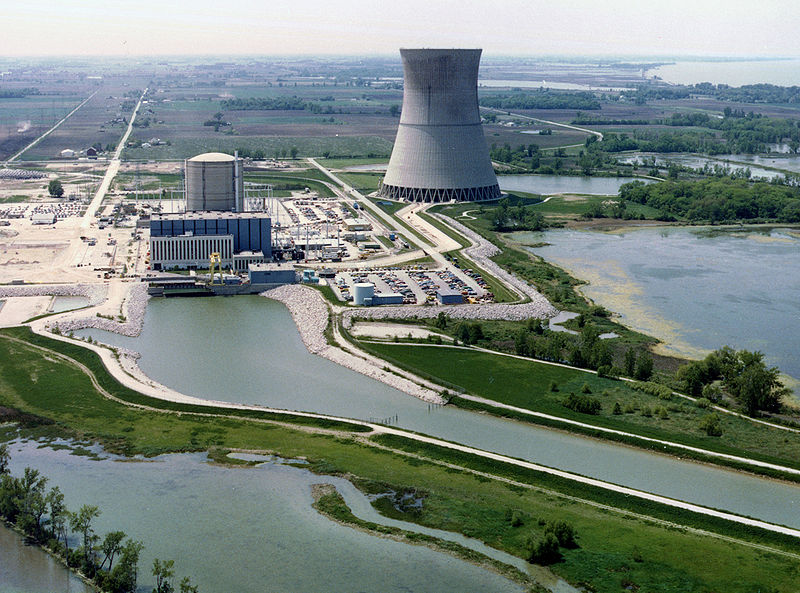
July 21 — Nuclear bribery — Ohio state legislative leader Larry Householder is arrested and charged with taking bribes from Akron-based FirstEnergy Corp. in exchange for promoting the state’s House Bill 6 in 2019, a $1.3 billion bailout for nuclear and coal fired plants in Ohio. HB 6 also blocked renewable energy competition. By late 2021, Ohio legislators repealed only part of the law; only minor fines were levied for First Energy, lobbyists from “Generation Now” were given probation, and Larry Householder was re-elected to the state legislature.
The bribery scandal shows the depth of systemic problems facing the nuclear industry. Tom Henry, a leading environmental journalist, wrote about the background of the case:
The $61 million alleged bribery scheme wrapped around FirstEnergy Corp. has opened old wounds for the Ohio utility giant, and convinced FirstEnergy’s harshest critics that the corporation never learned its lesson from the company’s last colossal public relations failure. FirstEnergy Corp. was fined a record $28 million more than 14 years ago to avoid being criminally prosecuted for lying to the government about the dangerous condition of the Davis-Besse nuclear power plant’s original reactor head. The government at the time said it was lowering the boom on FirstEnergy because it had shown “brazen arrogance” and had “breached the public trust.”
July 28 — Two thousand toxic waste sites are threatened by sea level rise in the United States, according to a UCS report.
Aug 2 — Massive oil spill first noticed along Venezuela’s Caribbean coast.
Aug 8 — Konrad Steffan, an international leader in climate change and Arctic research, dies after falling into a crevasse near “Swiss Camp” in Greenland.
Aug 20 — Atlantic Magazine publishes story about the Trump administration undermining the national supergrid for renewable energy.
Aug. 25 — The Case for Climate Action, a report by a group of Democrats in the US Congress, is released on this day, providing a blueprint for action should Democrats manage to take control of the Senate and White House in November. 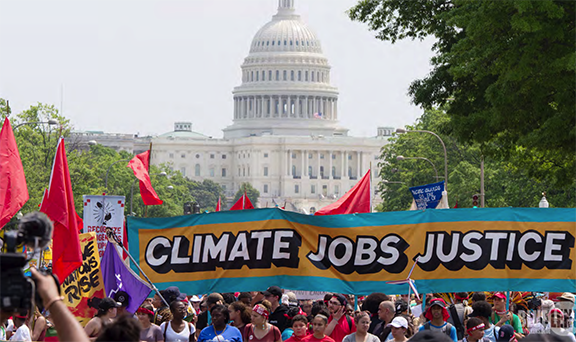
After 50 years of talking about it, we can achieve true energy independence. The oil price war earlier this year made clear that U.S. oil remains captive to the ups and downs of global markets and foreign powers. Nothing could be further from “independence” than leaving American workers and consumers constantly exposed to other nations’ whims. ACHIEVING A CLEAN ECONOMY WILL CREATE MILLIONS OF NEW JOBS in our country and positively impact household income.12 In the recent past, renewable energy jobs have grown fast. Wind and solar jobs have been the two fastest growing professions in the nation in the last 10 years, with roughly 60 percent growth rates.13 Studies estimate that every $1 million shifted from fossil fuel-generated power to clean energy creates a net increase of five jobs.14 American leadership in manufacturing was once the foundation of a large middle class, and it can be again if we focus on clean technologies.
Aug 31 — Sea Level Rise — The worst case scenario is on track, scientists say. “Observed ice-sheet losses track the upper range of the IPCC Fifth Assessment Report sea-level predictions, recently driven by ice dynamics in Antarctica and surface melting in Greenland. Ice-sheet models must account for short-term variability in the atmosphere, oceans and climate to accurately predict sea-level rise.” — Thomas Slater, Anna E. Hogg & Ruth Mottram in Nature Climate Change.
September — California wildfires of 2020 have burned more acreage than any other year in history.
Sept 8 — Air Quality — Nine out of ten people worldwide breathe unclean air, according to a United Nations study.
Sept 10 — Biodiversity — Populations of mammals, fish, birds, reptiles, and amphibians have declined an average of 68% between 1970 and 2016, according to World Wildlife Fund’s (WWF) Living Planet Report 2020. Between 1970 and 2016, monitored vertebrate species populations declined an average of:
-
- 68% globally
- 94% in Latin America and the Caribbean
- 84% in freshwater habitats
Populations in Latin America and the Caribbean have fared worst, with an average decline of 94%.
Nov. 3 — Joe Biden wins US presidential election, commits to re-joining the Paris Climate Treaty.
2021
President Joe Biden’s environmental agenda rolls out in January and February of 2021. Among the changes:
- The US formally rejoins the Paris Climate Accords
- John Kerry appointed special envoy for climate diplomacy
- Plan to convene world leaders to a climate summit on Earth Day
- Civilian Climate Corps will be established along the lines of the 1930s Civilian Conservation Corps.
- Freeze on fossil fuel subsidies and federal lands oil and mining
- Environmental Justice office re-established in the DOJ
- Thirty percent land and ocean conservation goal by 2030
- Replace government fleet of 650,000 vehicles with electric models
- Pledged to double US offshore wind capacity by 2030
- Blocked Trump bird policy that lifted protection
- Reinstated protections for Alaska’s Tongass forest
- Re-instate energy efficiency standards for buildings and appliances
- Review Trump rules allowing catastrophically dangerous LNG on rail
- Address Trump’s lifting of wilderness protection order
- Cancel Keystone XL pipeline
Ongoing: The Washington Post is keeping track of dozens of environmental regulatory changes.
 Jan. 6 — Biodiversity — Dozens of frogs, fish, orchids and other species — many unseen for decdes — may no longer exist due to humanity’s destructive effects on the planet. (The Revelator)
Jan. 6 — Biodiversity — Dozens of frogs, fish, orchids and other species — many unseen for decdes — may no longer exist due to humanity’s destructive effects on the planet. (The Revelator)
Jan. 7 — Dirty air is a likely cause of hundreds of thousands of stillbirths and miscarriages annually, according to a study in The Lancet Planetary Health journal. (Environmental Health News)
Jan. 8 — Climate — Twenty two climate disasters cost the US alone over $95 billion. (Guardian) Global losses are around $210 billion (Bloomberg).
Jan. 11 — Britain’s Prince Charles recommends a “Terra Carta” agreement to bring business in line with sustainability. (Guardian)
Jan. 12 — Biodiversity — Insect population decline is tearing apart the tapestry of life a group of scientists warn in a set of articles in the Proceedings of the National Academy of Sciences. (Guardian).
Jan. 14 — United Nations officials are warning that millions of people are facing climate related disasters and that nations are moving too slowly. (Guardian)
Jan. 14 — Nine Michigan officials face criminal charges in wake of Flynt lead water scandal. (NY Times)
Jan. 19 — Supreme Court heard arguments in a landmark climate change case BP v Baltimore. (Sierra Magazine, SCOTUS blog).
Jan. 19 — Court voids tortured Trump air pollution regulations. (NY Times)
Jan. 20 — Climate — President Joe Biden orders US to rejoin Paris Climate Agreement. (NY Times)
Jan. 23. — Amazon — Brazilian president Jair Bolsonaro could face charges in The Hague’s International Criminal Court over human rights violations as Indigenous leaders and human rights groups accuse Brazilian president of crimes against humanity in the Amazon. (Guardian)
Jan. 25 — Climate — Anti-environmental climate deniers are shifting tactics says Michael Mann in new book. (E & E News)
Jan. 26 — Climate — Global ice loss is accelerating, according to a new study by the University of Leeds’ Centre for Polar Observation and Modeling. (Washington Post, Copernicus EGU). Meanwhile, southern oceans are warming at a higher rate, according to a Sorbonne University climate study.
Jan. 27 — Oceans — Shark populations have dropped 71 percent since 1970, according to a study from Scripps Oceanographic Institution. (Associated Press)
Jan. 29 — Oil & Africa — Shell Oil Co. will compensate Nigerians for oil pollution leaks in the villages of Oruma and Goi, a Dutch court orders. (Associated Press) Shell has turned Nigeria into a hellscape of polluted horizons and human rights outrages since the 1950s, with the quasi-judicial execution of Ken Saro-Wiwa and 8 others in 1995 remembered by history as a particular atrocity.
Feb. 1 — Climate — The Western US was ravaged by heat and drought last year, removing any doubt that the climate is changing. (Inside Climate News)
Feb. 1 — Biodiversity — Bumblebees and other pollinators need Endangered Species listing, the Center for Biological diversity says.
Feb. 2 — Natural Capital — Nations will need to rethink economic growth as a measure of success if they want to halt the destruction of the natural world, according to a British government-backed report published on Tuesday. (Aljazeera)
Feb. 2 —Sea level— A new study finds that sea level rise may happen much more quickly than expected. (Mongabay)
Feb. 3 — Hydro Dams— The world’s aging dams pose a threat, with 19,000 large dams now more than 50 years old, according to a UN University Study. (Yale 360, UNU)
Feb. 4 — Oceans — Humans have changed the ocean soundscape, which is vital to ocean life, scientist have found. (Associated Press)
Feb. 5 — Wind energy — South Korea unveils plans for world’s largest offshore wind farm. (Reuters
Feb. 5 — Oil Spill — Russian court fines MMC Norilsk 146 billion rubles ($1.96 billion) following a May 29, 2020 spill of 17,500 tons of diesel fuel. (The Hill, Wikipedia)
Feb. 6 — Waste to energy incinerator is shutting down in Detroit, Michigan after repeated air pollution violations. (AP)
Feb. 7 — US Climate scientist seeks judgement in defamation suit. (Inside Climate News)
Feb. 7 — Himalayan glacier bursts in India — At least 31 people were killed and 165 are missing after two hydroelectric dam complexes were swept away in a glacier burst in Uttarakhand state, India. The deadly flood was probably started by a landslide. (NBC News, Scientific American). Scientists had warned of danger in developing hydro plants there. (NY Times) Similar glacial floods are feared for Peru and other countries. (Inside Climate News)
Feb. 9 — Fossil fuel pollution causes 1 in 5 premature deaths globally. (Reuters)
Feb. 9 — Trump administration interfered with toxic chemical assessment, EPA officials now say. (The Hill).
Feb. 10 — Air pollution in US subway systems far worse than health standard: 251 micrograms per cubic meter of PM2.5, as opposed to health standard of 35 micrograms per cubic meter. (Guardian)
Feb. 10 — Kids & climate — US courts declined to re-hear Juliana v United States, the kids climate case. (BNA News) But the international youth movement for climate action carries on. In Korea, K-Pop fans are becoming active; and Greta Thunberg’s climate advocacy may lead to more action. (News Trust, The Conversation). In India, support for striking farmers has led to criminal charges for Thunberg and pop star Rihannon. (Washington Post).
Feb. 10 — China’s crackdown on illegal CFC use seems to be working, scientists say. (Inside Climate News)
Feb. 10 — California’s aging dams create peril for residents downstream. (LA Times)
Feb. 11 — Natural gas fracking hasn’t lifted the economies of rural Appalachia, a study found. (Daily Climate).
February 10 – 20 — Power crisis in Texas follows three severe winter storms in which 125 people died and millions were left without power in freezing temperatures. State officials including the governor initially blamed the outages on frozen wind turbines and solar panels, but data showed that failure to winterize power sources, primarily those of natural gas, had actually caused the grid failure.
February — Plague of locusts in East Africa is one of the worst in decades, with the insects destroying crops and grazing grounds. Scientists told Reuters that unusual weather patterns exacerbated by climate change created ideal conditions for insects to thrive.
March 8 — Air pollution in the UK may lead to EU fines, even though Britain left the EU last year. The EU Court of Justice ruled that Britain had breached the bloc’s air pollution limits for years.
March 29 – Offshore wind will be at the center of the Biden administration’s renewable energy strategy, the White House announced. The idea is to create jobs while protecting the environment, Biden said.
March 30 — Pope Francis, warning about climate change, adapted a line from Hamlet and asked people to be aware of the potential damage: “To see or not to see, that is the question.” He also asked people to work together in protecting “creation, our common home” and not “hunker down” in individualism.
March – Desertification accelerates in China as Beijing’s sky turns orange and flights are grounded during the worst sandstorm in a decade.
April 7 – Greenland’s Inuit Ataqatigiit party wins parliamentary election with opposition to a large mining project.
April 22 — US Climate Summit ends with US and world leaders agreeing on climate accords. In many ways, the summit reflects the US return to the global environmental community and leadership after four years of the Trump administration.
April 23 — China will start phasing down coal, starting in 2026, as part of its climate commitments, President Xi Jinping said at a summit of global leaders. US – Chinese cooperation on climate was also promoted, but the lukewarm agenda disappointed some scientists and activists.
May 11 — Climate change affects everyone — After four years of suppression, the EPA is finally free to tell the truth about climate change, and it’s not pretty. “Freshly compiled data, the federal government’s most comprehensive and up-to-date information yet, shows that a warming world is making life harder for Americans, in ways that threaten their health and safety, homes and communities,” the New York Times said of EPA’s report. “And it comes as the Biden administration is trying to propel aggressive action at home and abroad to cut the pollution that is raising global temperatures.”
May 19 — French climate proposal is controversial — A wide-ranging environmental bill passed by the French National Assembly will change work, energy and food in France, with, for example, a new crime of “ecocide,” carrying jail terms of up to 10 years. France’s Green Party says the bill is deeply flawed.
May 20 — Oil industry wins in US Supreme Court case BP v. Baltimore/ The court refused to let the city of Baltimore recover the costs of climate change damages. See the Sierra Club article here.
June – July — Extreme heat wave kills hundreds of people and breaks all-time weather records around the world.
World record temperatures July 1 — Kuwait 53.2 C (127.76G); Pakistan 52 C (125.6F); Iraq 51.6 (124.88); British Columbia, Canada 49.6 (121.28); US 46.6 (115.88)
June 29 – July 1 — Central B.C. town of Lytton, Canada sets an all-time-high temperature record of 49.6 °C (121.3 °F) and is then destroyed when a wildfire sweeps through.
Climate change is (of course) the issue: “Climate change has loaded the weather dice against us,” Katharine Hayhoe, a climate scientist, told the Washington Post. “These extremes are something we knew were coming,” she added. “The suffering that is here and now is because we have not heeded the warnings sufficiently.”
July — The record heatwave and drought in the American West spawns two wildfires in California and Oregon — among the largest in the history of both states. Similar droughts and heatwaves occur in most of the world, from Argentina to Siberia.
Floods devastate Europe beginning July 12, killing at least 221 people
August — Fires from a heat wave, with some places in Greece recording temperatures of over 46 Celsius (115 Fahrenheit), forced the evacuation of thousands of homes in Algeria, Greece and Turkey.
August — Mountain glaciers are in retreat worldwide. In Switzerland, resort employees placed protective blankets over one of Mount Titlis’s glaciers to preserve what little ice is left. The country already has lost 500 glaciers, and could lose the 1,500 that remain by the end of the century if global emissions continue to rise.
Aug. 9 — IPCC climate report projects catastrophe if we continue on our current course
Reuters: “HUMANS ARE TO BLAME – FULL STOP The Intergovernmental Panel on Climate Change (IPCC) used its strongest terms yet to assert that humans are causing climate change, with the first line of its report summary reading: “It is unequivocal that human influence has warmed the atmosphere, ocean and land.”
Associated Press; ‘Earth’s climate is getting so hot that temperatures in about a decade will probably blow past a level of warming that world leaders have sought to prevent, according to a report released Monday that the United Nations called a “code red for humanity.” “It’s just guaranteed that it’s going to get worse,” said report co-author Linda Mearns, a senior climate scientist at the U.S. National Center for Atmospheric Research. “Nowhere to run, nowhere to hide.
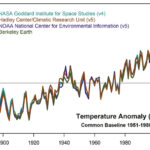 UN-IPCC: GENEVA, Aug 9, 2021 – Scientists are observing changes in the Earth’s climate in every region and across the whole climate system, according to the latest Intergovernmental Panel on Climate Change (IPCC) Report, released today. Many of the changes observed in the climate are unprecedented in thousands, if not hundreds of thousands of years, and some of the changes already set in motion—such as continued sea level rise—are irreversible over hundreds to thousands of years. However, strong and sustained reductions in emissions of carbon dioxide (CO2) and other greenhouse gases would limit climate change. While benefits for air quality would come quickly, it could take 20-30 years to see global temperatures stabilize, according to the IPCC Working Group I report, Climate Change 2021: the Physical Science Basis, approved on Friday by 195 member governments of the IPCC, through a virtual approval session that was held over two weeks starting on July 26.
UN-IPCC: GENEVA, Aug 9, 2021 – Scientists are observing changes in the Earth’s climate in every region and across the whole climate system, according to the latest Intergovernmental Panel on Climate Change (IPCC) Report, released today. Many of the changes observed in the climate are unprecedented in thousands, if not hundreds of thousands of years, and some of the changes already set in motion—such as continued sea level rise—are irreversible over hundreds to thousands of years. However, strong and sustained reductions in emissions of carbon dioxide (CO2) and other greenhouse gases would limit climate change. While benefits for air quality would come quickly, it could take 20-30 years to see global temperatures stabilize, according to the IPCC Working Group I report, Climate Change 2021: the Physical Science Basis, approved on Friday by 195 member governments of the IPCC, through a virtual approval session that was held over two weeks starting on July 26.
NASA: Strong scientific consensus that earth’s climate is warming and action is urgently needed.
August 26 — Hurricane Ida makes landfall in Louisiana leaving 115 fatalities in its wake across the Caribbean and $65 billion in damages. It is the second most expensive hurricane to hit the US after Katrina in 2005.
Sept 8 — President Joe Biden announces plan to reduce US greenhouse gasses by 50% within ten years.
Sept. 10 – The summer of 2021 was the hottest on record says NOAA.
September — Melting permafrost — Infrastructure and homes across the Arctic are increasingly in peril as underground permafrost melts. The once “permanent” frozen layer of ground is now melting at an accelerating rate due to climate change. And as the underground ice turns to squelchy muck, it’s exposing long-hidden threats to our climate, ecosystems, and health, according to the Natural Resources Defense Council.
Oct 11 — Two dozen countries joined a U.S.- and EU-led effort to slash methane emissions 30% by 2030 from 2020 levels.
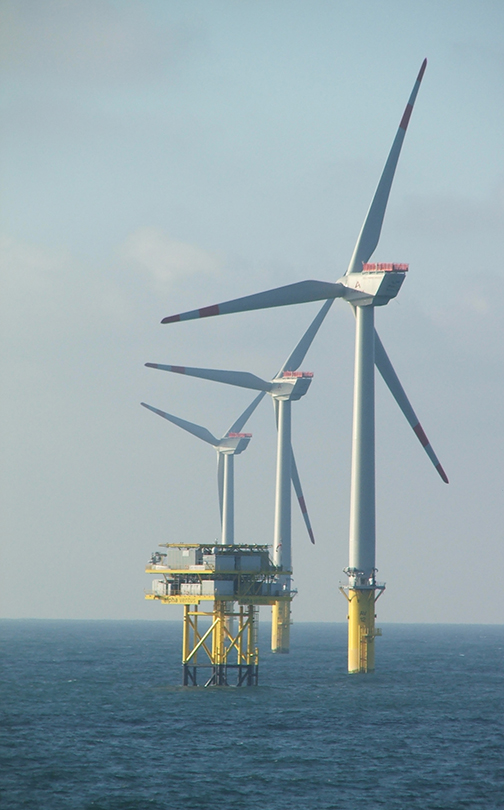
Offshore wind power development accelerates in the US with an Oct. 13 announcement from the Biden administration about expanded offshore leasing. (Photo by SteKrueBe, Wikipedia).
Oct. 31 — The 2021 United Nations Climate Change Conference opens in Glasgow, Scotland after an usual year of heat waves, floods, forest fires and rising ocean levels tied to climate change from fossil fuels. An overview of the conference by the BBC explains that the world is warming because of fossil fuel emissions caused by humans; and that extreme weather events linked to climate change are intensifying. The past decade was the warmest on record. World governments agree urgent collective action is needed.
November — Floods in Sudan, British Columbia — A third year of record flooding in South Sudan has affected 780,000 people, according to the U.N. refugee agency. Meanwhile, a massive storm dumped a month’s worth of rain over two days in the Canadian province of British Columbia, unleashing floods and mudslides that destroyed roads, railroads and bridges.
Nov 2 — Ten online publishers are responsible for most of the climate change denial content on Facebook, according to a study by the nonprofit Center for Countering Digital Hate.
Nov 28 — Amazon rainforest destruction soared 22% in the past year, according to Brazil’s space research agency, INPE, with 13,235 square kilometers (5,110 square miles) of deforestation from August 2020 to July 2021.
Dec 30 — A rapidly developing suburban fire near Denver, Colorado left at least three people missing and devastated an area of 9.4 square miles (24 square kilometers) Nearly a thousand homes and stores were burned to the ground. The unusually sudden nature of the fire within a suburban development was attributed in part to climate change and unseasonably dry conditions.
2022
Following increasingly severe and erratic weather in 2021, a blizzard blankets the US and Canadian Pacific Northwest as record high temperatures continue on the East Coast.
Feb. 14 —Facebook misled investors about its efforts to combat climate change misinformation, according to complaints filed with the US Securities and Exchange Commission.
Feb 23 — Wildfires are becoming a serious problem as climate change accelerates, according to a UN report.
Feb 26 — Russian invasion of Ukraine should mean more oil and gas drilling in the US, the oil industry claims. “As a crisis looms in Ukraine, U.S. energy leadership is more important than ever,” the American Petroleum Institute, the powerful industry lobby group, wrote on Twitter with a photo that read: “Let’s unleash American energy. Protect our energy security.” A spokesman for the Environmental Voter Project responded: “Wars aren’t fought over solar energy.”
March 2 — An international plastics pollution treaty is signed at the United Nations.
March 18 — Nuclear power plants are even more vulnerable in times of war, and international experts are alarmed at events in Ukraine. According to the Washington Post: “Even without a direct hit on a reactor, we are learning of the fragility of nuclear power plants. Normal oversight and operations have essentially been replaced by isolation and disorder. Workers at Chernobyl have been on the job continuously for more than three weeks. They have no clean clothes (important for nuclear workers), no real beds, no contact with family, no proper meals or rest. At the Zaporizhzhia plant, according to a Ukrainian official, Russian soldiers have forced employees into submission. Employee-hostages — exhausted, hungry and stressed — could make mistakes. So could the untrained Russian military personnel who are giving the orders.”
March 19 – Arctic and Antarctic temperatures are far higher than normal, scientists warn.
 May 6 — The Emperor Penguin is at severe risk of extinction due to climate change, the Argentine Antarctic Institute said.
May 6 — The Emperor Penguin is at severe risk of extinction due to climate change, the Argentine Antarctic Institute said.
May 13 — The western US drought has dropped lake levels so low that human remains have been uncovered for the first time at the bottom of Lake Mead, near Las Vegas.
June 30 — C02 regulation struck down — The US Supreme Court struck down regulations designed to slow the accumulation of carbon dioxide in the atmosphere. While coal and oil industry dependents rejoiced, US President Joe Biden said the ruling was “another devastating decision that aims to take our country backwards… We cannot and will not ignore the danger to public health and existential threat the climate crisis poses.”
July 1 — UN Oceans Conference adjourns with a warning for humanity:
“We are … deeply alarmed by the global emergency facing the ocean. Sea levels are rising, coastal erosion is worsening and the ocean is warmer and more acidic. Marine pollution is increasing at an alarming rate, a third of fish stocks are overexploited, marine biodiversity continues to decrease and approximately half of all living coral has been lost, while alien invasive species pose a significant threat to marine ecosystems and resources… We reaffirm that climate change is one of the greatest challenges of our time, and we are deeply alarmed by the adverse effects of climate change on the ocean and marine life, including the rise in ocean temperatures, ocean acidification, deoxygenation, sea level rise, the decrease in polar ice coverage, shifts in the abundance and distribution of marine species, including fish, the decrease in marine biodiversity, as well as coastal erosion and extreme weather events and related impacts on island and coastal communities, as highlighted by the Intergovernmental Panel on Climate Change.
Another summer of unprecedented heat, drought and fire consumes the northern hemisphere.
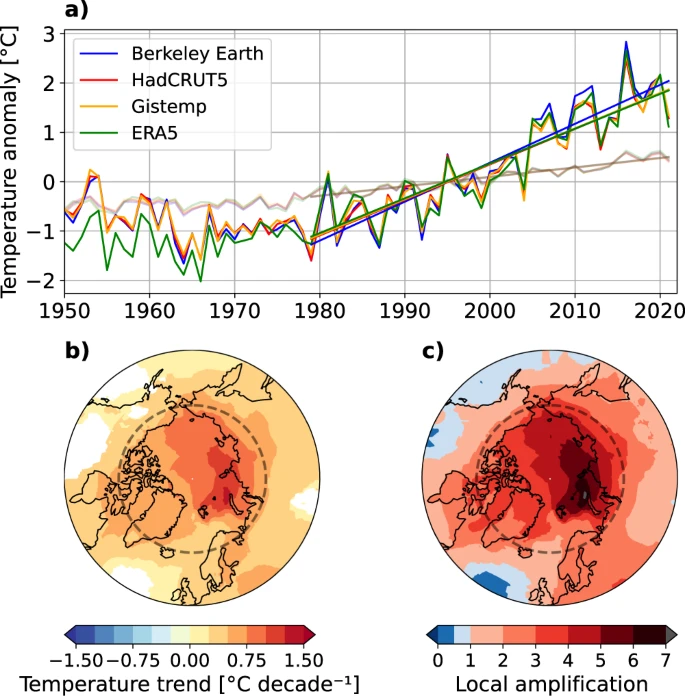
The Arctic has warmed nearly four times faster than the globe since 1979, according to this study published in Nature Aug. 11, 2022
Arctic warming — Aug. 11, 2022 — The Arctic is warming four times more quickly that the rest of the world, according to a study published in Nature: Communications Earth & Environment. Scientists said it is possible that previous climate models have tended to systematically underestimate the Arctic amplification.
Aug 12 — Climate bill passes US Congress – Subsidies for clean energy sources passed the US Congress, shifting the basic economics of energy in the US away from carbon-rich fuels.
Oct 3 — Russia’s invasion of Ukraine has caused $35 billion in environmental damage, and the Ukrainian government said it will seek compensation in international courts.
Oct 16 — China’s President Xi Jinping says in a speech opening the Communist Party Congress that the country will prioritize environmental protection, adding that conservation of nature is an essential part of building a modern socialist country. Human Rights Watch and other groups have been skeptical of human costs of environmental pollution in China.
Dec 7 — Australia will overhaul its environmental laws and set up a new agency to make decisions on the approval of development projects, Environment Minister Tanya Plibersek said.
Dec 7-19 — UN Biodiversity Conference in Montreal, Canada, ends with a “deal for nature” but also stark warnings about the risks of continued losses.
2023
Jan 4 — Norway says it will reinstate funding for Amazon conservation projects following the Brazilian election of a pro-environmental president Luiz Inacio Lula da Silva.
Jan 30 — US EPA will block an enormous Alaskan copper and gold mining project due to its unacceptable environmental impacts.
Feb 17 — US EPA reaffirms mercury emissions regulations. The mercury limits had been weakened under President Trump.
Feb 20 — Few if any seabird – wind turbine collisions take place, reports Vattenfall, a multinational Swedish power company, following radar and video studies.
Feb 23 — Train derailment and fire in East Palestine, Ohio, results in hydrogen chloride and phosgene exposure. Over 100,000 gallons of hazardous chemicals in 23 tank cars are deliberately burned off. Public outrage follows when information emerges about poor emergency communication and railroad cost-cutting.
March 24 — Chemical spill at the Trinseo Altuglas chemical plant 20 miles north of Philadelphia on the Delaware River. Between 8,100 and 12,000 gallons of butyl acetate, ethyl acetate and methyl methacrylate were released.
April 17 — Earth energy balance study published in Earth System Science Data (illustration, right) brings together interdisciplinary studies of overall climate change. About 89 percent of excess global heat is being absorbed in the oceans, with about 5 % for land, about 4 % for the cryosphere, and about 2 % for the atmosphere, the study concluded.
July 27 — Global boiling has arrived, says António Guterres, U.N. Secretary-General. “Climate change is here. It is terrifying. And it is just the beginning. The era of global warming has ended; the era of global boiling has arrived.”
Aug 8 — Sudden wildfire kills at least 100 people in Lahina, Hawaii. The wildfire is part of a summer-long drought and intense wildfire season across the northern hemisphere, especially in Canada and Siberia.
Sept 6 — Summer of 2023 is the hottest on record, according to the EU Copernicus climate program.
Oct 4 — Pope Francis’ message on the climate crisis: “Despite all attempts to deny, conceal, gloss over or relativize the issue, the signs of climate change are here and increasingly evident. No one can ignore the fact that in recent years we have witnessed extreme weather phenomena …” People have a spiritual duty to join a “pilgrimage of reconciliation” with nature, he said.
2024
Jan 3 — Yale climate connections says the world made some progress in 2023, and says here’s what to watch for in 2024. Serious efforts to protect Sacred Groves are part of the picture.
Jan 9 — The world shattered heat records in 2023 and is flirting with an upper warming limit (AP) European climate agency Copernicus said the year was 1.48 degrees Celsius above pre-industrial times. The 1.5 degree goal “has to be (kept) alive because lives are at risk and choices have to be made,” said Copernicus Deputy Director Samantha Burgess. “And these choices don’t impact you and I but they impact our children and our grandchildren.”
March 4 — Exxon CEO says consumers are to blame — not them — for the rapid acceleration of climate change (Guardian).
April 10 — Switzerland’s climate policies violated human rights, the European Court of Human Rights said in a landmark ruling.
April 17 — It was a record year for wind power says the Global Wind Energy Council, with 117 gigawatts of capacity installed. Along with over 370 gigawatts of solar, world renewable energy capacity is rapidly increasing. Still, about 70 gigawatts of coal power capacity also came online worldwide in 2023.
April 29 — Goldman Environmental Prize committee named seven activists for the annual “Green Nobel Prize.” They included two Indigenous activists who stopped destructive seismic testing for oil and gas off the Eastern Cape in Africa, an activist who protected a forest in India from coal mining, an organizer who changed California’s transportation regulations, a journalist who exposed links between beef and deforestation in Brazil, an activist who blocked development of a coal mine in Australia, a professor of philosophy of law who led a campaign that resulted in legal rights to an ecosystem in Spain. (Mongabay, April 29).
May 2 — Violence against environmental journalists is increasing, UNESCO says on World Press Freedom Day.
May 20 – Antarctica’s Thwaites “doomsday” glacier is more vulnerable to melting than previously thought, climate scientists say. (Washington Post). Record jumps in Antarctic temperature are harbingers of catastrophe, say scientists (Reuters).
June 5 — Stop Fossil Fuel propaganda — United Nations Secretary-General António Guterres called fossil fuel companies the “godfathers of climate chaos,” and urged all countries to ban fossil fuel advertising. He also called on PR firms, media outlets, and tech companies to stop promoting fossil fuel ads that lie to the public and hide the role the industry plays in the climate crisis. “Many in the 0fossil fuel industry have shamelessly greenwashed even as they have sought to delay climate action,” Guterres said. “I urge news media and tech companies to stop taking fossil fuel advertising.” ( Reuters, June 5; Heated, June 5)
June 27 — IUCN “red list” of endangered species grew by 6,000 in 2023. (Associated Press) Just setting aside 1.2% of the world’s land as nature preserves would prevent the majority of predicted extinctions, according to a study in Frontiers in Science. (Reuters, June 25).
July 4 — UN Seabed mining agency fight gets nasty, says the NY Times.
July 21 was the hottest day ever recorded, according to preliminary data from the European Union’s Copernicus Climate Change Service, which has tracked such global weather patterns since 1940. (Reuters, July 23). Record high temperatures are killing thousands around the world, for example in Japan (AP article), and Mexico (also AP). The annual Hajj pilgrimage to Mecca was marred by the deaths of hundreds (Washington Post, June 19) as temperatures soared to 52 degrees C (125 degrees F). Temperatures in Pakistan were as high as 54 degrees C (Reuters, May 27)
July 22 — US presidential candidate Kamala Harris’ support for environmental protection is evident from her record, the New York Times says. Meanwhile, the return of Donald Trump to the US presidency would see climate progress unravel, says former US Secretary of the Interior Sally Jewell. (Bloomberg, July 11). Trump believes clean energy and concerns about climate change are “a scam,” but typically, he provides no evidence to back up his weird claims.
July, 2024 — World hunger is on the rise with climate change says a UN report. “The agri-food system is working under risk and uncertainties, and these risks and uncertainties are being accelerated because of climate [change] and the frequency of climate events,” Máximo Torero Cullen, chief economist of the U.N.’s Food and Agriculture Organization, or FAO, said in a briefing. It is a “problem that will continue to increase,” he said, adding that the mounting effects of warming on global food systems create a human rights issue.” (Grist Magazine, July 29, 2024)
July 30 Global methane emissions are rising more rapidly than ever, researchers say. (Guardian, July 30, 2024).
Aug 8 — The UN says fossil fuel companies are running “a massive mis- and disinformation campaign” so that countries will slow down the adoption of renewable energy and the speed with which they “transition away” from a carbon-intensive economy. Selwin Hart, the assistant secretary general of the UN, said that talk of a global “backlash” against climate action was being stoked by the fossil fuel industry, in an effort to persuade world leaders to delay emissions-cutting policies. (The Guardian, Aug. 8, 2024).
Nov 5 — Kamala Harris, known for centerist environmental positions, loses US presidential election to anti-environmental candidate Donald Trump, who is re-elected by a slim margin and immediately begins radical plans to dismantle all environmental and clean energy initiatives.

